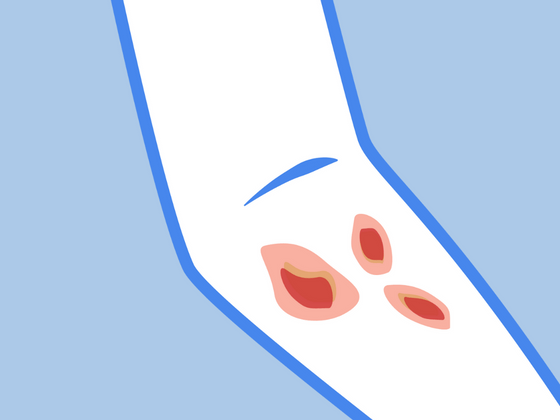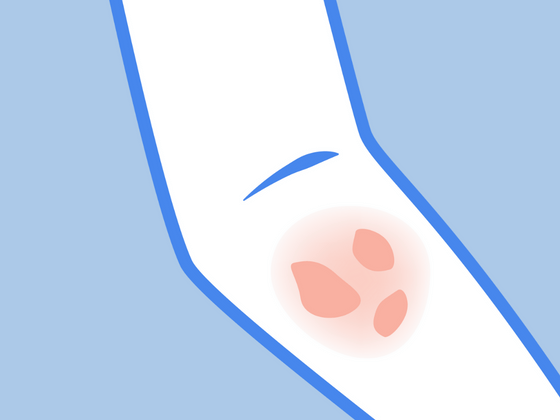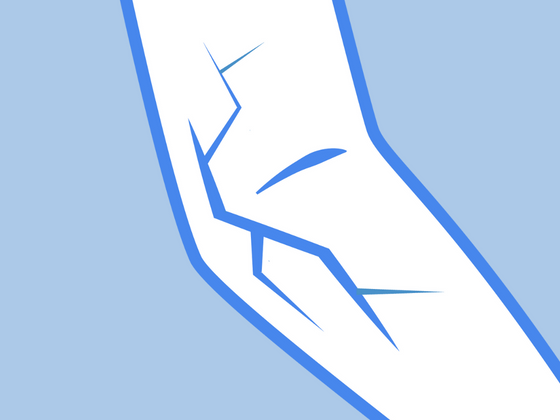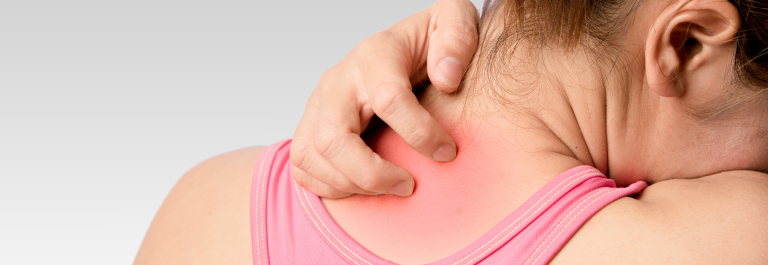Eczema refers to a set of chronic inflammatory skin conditions typically characterized by itchy, dry, and sensitive skin patches.
While there is no exact root cause, it results from a combination of genetic and environmental factors which trigger an overactive immune system and weakened skin barrier. This causes the body to become extra sensitive to environmental irritants, coinciding with other allergic conditions such as asthma or hay fever.
Most often, eczema develops during early childhood, with most patients outgrowing their symptoms before their eighteenth birthday. But why does eczema improve with age, and what happens if that's not the case for you?
Well, throughout this post, we're going to cover everything you need to know about:
-
How and why many children outgrow eczema
-
How eczema symptoms tend to change with age
-
The right treatments for eczema at every stage of life
Keep reading to learn more about how eczema evolves with age and how to manage long-term eczema symptoms to ensure that you not only cope living with this skin condition but can thrive!
Is It Possible To 'Outgrow' Atopic Dermatitis?
For many eczema patients, this is the big question. The short answer? Yes.
Many peer-reviewed studies have found that almost two-thirds of children will see their eczema symptoms drastically improve or disappear as they enter adulthood.
Having said this, that's not to say that you'll live eczema-free in adulthood. Most people who had eczema as a kid might still experience the odd eczema flare-up when their skin is triggered (such as by excessive heat or environmental allergens), but symptoms will be milder.
It is also likely you'll still experience dry skin, especially during the winter, requiring long-term tender love and care.
What If My Eczema Doesn't Get Better?
Atopic dermatitis can be a life-long condition for some people.
If you're one of the 25% of people who develop eczema at an older age, it's more likely that you'll experience repetitive flares throughout your lifetime.
Developing eczema later in life could be spurred by several factors, including:
-
Naturally developing drier skin with age
-
A particularly stressful or traumatic life event
-
Menopause
Eczema Symptoms: Changing With Age
As we've established, the intensity of your eczema symptoms will likely shift and change depending on your age and life circumstances. On top of this, however, the location of eczema patches on your body is also likely to change based on your age. Let's take a look.
Infant Eczema
From as young as one month old, babies are most likely to develop eczema on their face, chest, diaper area, and the skin on the back of their head (seborrheic dermatitis or cradle cap).
Eczema In The Teen Years
From as young as two years old right through adolescence, you'll likely see eczema flares characteristically developing on the skin behind your knees, in the eyes of the elbows, on the hands, behind the ears, around the eyes, and the mouth.
Adult Eczema
During this phase of life, eczema tends to flare across the eyes of the elbows, hands, and scalp (seborrheic dermatitis), across the skin around the eyes, and the nipples.
The Best Treatments For Eczema At All Ages
No matter whether your baby is coping with a short-term burst of eczema in infancy or you're dealing with decades of repetitive itchy skin rashes, there are many treatment options to help you and your loved ones control your flares.
Prescription Medications
Following a traditional medical route, eczema tends to be treated by a range of over-the-counter or prescribed medications, including topical treatments such as steroid creams.
Especially when it comes to treating infant eczema, however, giving babies certain medications might not be safe, and alternative treatment methods need to be found.
We've got a few ideas to get you started.
Use Gentle Skincare Products
We know that eczema is triggered and worsened by environmental irritants. So you must ensure your skincare regimen is made with ingredients from high-quality sources, fragrance-free, and nourishing for sensitive skin.
This Organic Calendula Salve contains vitamins, antioxidants, essential fatty acids, plant compounds, and natural enzymes that work wonders on dry and sensitive areas. Made with whole golden calendula flowers and soothing organic beeswax, this oily salve is safe for babies and adults alike.
Wear Soft, Breathable Clothing
If you've experienced eczema, you'll know wearing rigid, scratchy clothing when your skin is inflamed and cracked is incredibly uncomfortable. To help give your body the best chance to heal, try switching to gentle clothing made from hypoallergenic fabrics.
This Remedywear™ (TENCEL + Zinc) long-sleeve shirt for kids and adults is an excellent option for eczema patients of all ages, alongside the Remedywear™ (TENCEL + Zinc) Pants for kids and adults.
These items have been awarded the National Eczema Association Seal of Acceptance™, for their TENCEL and embedded zinc, which are specially designed to reduce inflammation and speed up healing.
Break The Itch-Scratch Cycle
One of the most intense symptoms of eczema is itching, sometimes even keeping you or your little one awake at night. To help you break the itch-scratch cycle, try wearing gloves or fabric guards on your hands.
The Cotton ScratchSleeves with Scratch Mittens are designed for older babies and children to help protect delicate skin from relentless scratching while keeping them cool and comfortable.
Switch To Gentle Laundry Detergent
To avoid triggering an eczema flare with harsh cleaning chemicals, switch to a fragrance-free, 100% hypoallergenic laundry detergent. The SmartKlean Laundry Ball is safe for babies and those with eczema, other disorders, and sensitive skin.
Contacting A Board Certified Dermatologist: Time To Call The Doctor?
If your baby develops eczema, we recommend you check in with a board-certified dermatologist for expert advice and guidance.
Later in life, if you notice your eczema symptoms persisting or worsening despite home treatment, contact a doctor to help you put together a game plan moving forward.
Manage Eczema At Every Stage of Life
Whether your eczema symptoms disappear during adulthood or regularly flare in persistent cycles, atopic dermatitis doesn't have to be a life-long struggle. At every stage of life, many effective treatments are available to help you and your loved ones get a handle on your symptoms, soothe your skin, and feel your best.








